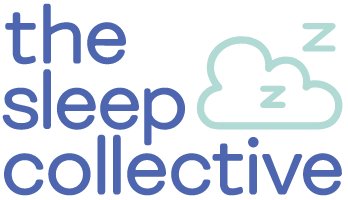Benefits of a Bedtime Routine
We’ve all heard that a good bedtime routine is an important way for our little ones to wind down before bed, but did you know that even animals conduct bedtime rituals before turning in for the night? Think about how a dog always turns a few circles before lying down.
A new study published in the Nature Neuroscience journal found that practising good sleep hygiene, including a consistent pre-bedtime routine is a natural tendency all mammals have and essential to our feelings of safety and comfort, and a part of our natural survival instincts.
Science has taught us that the human body and brain are hardwired to prepare for sleep when provided a consistent and predictable pre-sleep ritual. And this is even more important for the developing brains of our babies and toddlers. Their brains are developing at an unparalleled rate with language development and new experiences at its height.
Sleep is a vulnerable state. So for a child’s brain to effectively switch from awake to asleep, it needs repetitive cues that send messages that we are feeling safe and secure - and nothing makes a baby feel safer than predictability in a world where everything is new and stimulating.
There is no one way to conduct a bedtime routine. It is important to create a rhythm that best represents your family and its values.
Here are a few ideas to get you started:
A warm bath or shower
Not only fun, but a bath also lowers the body's core temperature, a signal to our circadian rhythms that sleep is coming soon. Water is such a calming and relaxing activity for most babies, getting them into water works miracles for colicky babies or emotional toddlers.
Infant massage
Who doesn't love a massage? Touch is a lovely way to encourage relaxation and connection before bed. There has been a ton of research around the benefits of infant massage, so grab some oils and add this winner to your bedtime routine.
Storytime
We could go on and on about the benefits of reading to our little ones. Reading books before bed sparks their imagination, teaches them valuable life lessons and has been proven to relax the mind and body before sleep.
Calming music
Music has many developmental positives for growing brains, it is such a positive way to make connections before bed. You can choose soft music or even sing your favourite songs together.
Goodnight rituals
Repeating the same goodnight phrase, conducting a little kissing ritual or even a few back tickles. Babies sleep best when they are feeling loved and connected to their caregivers.
Silly games
Contrary to popular belief, a completely calm and relaxing bedtime routine isn’t always required. For our toddlers and older kids, opting for a fun and silly bathtime or family play time before jammies go on has huge benefits for sleep. Not only does this release some steam and energy, but it also has the sleepy advantage of releasing oxytocin to little ones' brains (and big ones too!), which helps lower anxiety in the lead-up to bedtime. Playing ‘roller coasters’ on Mum and Dad's laps or dodging the beanbag in a game of 'wrecking ball' are popular options in my house.
If you are experiencing bedtime battles, then looking at your bedtime routine is a great place to start when you need to find a solution.
We regularly work with families to transform the dreaded bedtime into everyone’s favourite time of day! If you want to know how we can support your family for better sleep, reach out and book a Discovery Call.


